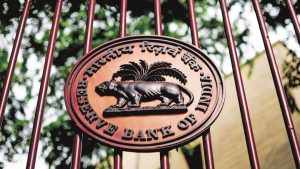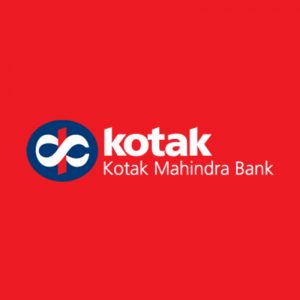 The 5th Round of India-Japan Maritime Affairs Dialogue was held in Tokyo, Japan. The two sides exchanged views on various topics of mutual interest in the maritime domain and identified the means for further strengthening their maritime cooperation. Both sides reiterated the importance of the Dialogue as an important mechanism between the two countries for consultations on issues of mutual interest in maritime affairs and agreed to hold the next round of the Dialogue on a mutually convenient date in India. The first round of India-Japan Maritime dialogue was held in New Delhi in 2013. The 5th Round of India-Japan Maritime Affairs Dialogue was held in Tokyo, Japan. The two sides exchanged views on various topics of mutual interest in the maritime domain and identified the means for further strengthening their maritime cooperation. Both sides reiterated the importance of the Dialogue as an important mechanism between the two countries for consultations on issues of mutual interest in maritime affairs and agreed to hold the next round of the Dialogue on a mutually convenient date in India. The first round of India-Japan Maritime dialogue was held in New Delhi in 2013. |
| Source: The Ministry of External Affairs |
 The Union Human Resource Development Minister launched the 5 documents developed by UGC covering the 5 verticals of Quality Mandate in New Delhi. These 5 documents cover evaluation reforms, eco-friendly and sustainable university campuses, human values & professional ethics, faculty induction and academic research integrity. These 5 documents help to improve the quality in Higher Educational Institutions, University Grants Commission has adopted the Higher Education Quality Improvement Programme Mandate. The quality mandate aims at evolving higher education system to equip country’s next-generation with vital skills, knowledge and ethics for leading a rewarding life. The Union Human Resource Development Minister launched the 5 documents developed by UGC covering the 5 verticals of Quality Mandate in New Delhi. These 5 documents cover evaluation reforms, eco-friendly and sustainable university campuses, human values & professional ethics, faculty induction and academic research integrity. These 5 documents help to improve the quality in Higher Educational Institutions, University Grants Commission has adopted the Higher Education Quality Improvement Programme Mandate. The quality mandate aims at evolving higher education system to equip country’s next-generation with vital skills, knowledge and ethics for leading a rewarding life. |
| Source: The Press Information Bureau |
 The Union Health Minister has inaugurated the 2nd edition of “Eat Right Mela” in New Delhi. The Eat Right Mela of Food Safety and Standards Authority of India (FSSAI) is a commendable effort and outreach activity for citizens towards eating right. The Union Minister launched ‘The PURPLE Book’ a handbook on diets for diseases. The book provides general guidelines for hospitals on suitable diets for common medical conditions such as diabetes, hypertension, cancer, gut disorders and so on in a simple format and has been developed and vetted by experts in the field of food and nutrition. This book is available for free download on www.fssai.gov.in. The Union Health Minister has inaugurated the 2nd edition of “Eat Right Mela” in New Delhi. The Eat Right Mela of Food Safety and Standards Authority of India (FSSAI) is a commendable effort and outreach activity for citizens towards eating right. The Union Minister launched ‘The PURPLE Book’ a handbook on diets for diseases. The book provides general guidelines for hospitals on suitable diets for common medical conditions such as diabetes, hypertension, cancer, gut disorders and so on in a simple format and has been developed and vetted by experts in the field of food and nutrition. This book is available for free download on www.fssai.gov.in. |
| The Union Minister also launched NetSCoFAN (Network for Scientific Co-operation for Food Safety and Applied Nutrition), a network of research & academic institutions working in the area of food & nutrition along with the NetSCoFAN directory, covering detailed information of various heads/Directors and lead scientists of lead and associated partnering institutions. The NetSCoFAN would comprise of eight groups of institutions working in different areas viz. biological, chemical, nutrition & labelling, food of animal origin, food of plant origin, water & beverages, food testing, and safer & sustainable packaging. |
| Source: The Press Information Bureau |
 Chhatrapati Shivaji Maharaj Terminus (CSMT) railway station in Mumbai has been conferred with ‘Eat Right Station’ certification with the five-star rating by the Food Safety and Standards Authority of India (FSSAI) for food safety and hygiene. CSMT has been judged on the basis of compliance of food safety and hygiene, availability of healthy diet, food handling at preparation, food waste management, promotion of local and seasonal food and creating awareness on food safety and healthy diet. ‘Eat Right Station’ initiative is a part of the ‘Eat Right India’ movement launched by Food Safety and Standards Authority of India (FSSAI) and a Fast-Moving Consumer Goods (FMCG) major which is aimed at promoting food safety and hygiene at the static catering units at railway stations. Chhatrapati Shivaji Maharaj Terminus (CSMT) railway station in Mumbai has been conferred with ‘Eat Right Station’ certification with the five-star rating by the Food Safety and Standards Authority of India (FSSAI) for food safety and hygiene. CSMT has been judged on the basis of compliance of food safety and hygiene, availability of healthy diet, food handling at preparation, food waste management, promotion of local and seasonal food and creating awareness on food safety and healthy diet. ‘Eat Right Station’ initiative is a part of the ‘Eat Right India’ movement launched by Food Safety and Standards Authority of India (FSSAI) and a Fast-Moving Consumer Goods (FMCG) major which is aimed at promoting food safety and hygiene at the static catering units at railway stations. |
| Source: The News on AIR |
 The Government of India has approved the release of Rs 8,655 crore as fresh capital to three public sector banks. The list includes Allahabad Bank, Indian Overseas Bank (IOB) and UCO Bank. The infusion will be done for preferential allotment of shares. Fresh capital amounting to Rs 2,153 crore will be allocated to Allahabad Bank, Rs 2,142 crore to UCO Bank and Rs 4,630 crore to Indian Overseas Bank (IOB) for preferential allotment of shares. The Government of India has approved the release of Rs 8,655 crore as fresh capital to three public sector banks. The list includes Allahabad Bank, Indian Overseas Bank (IOB) and UCO Bank. The infusion will be done for preferential allotment of shares. Fresh capital amounting to Rs 2,153 crore will be allocated to Allahabad Bank, Rs 2,142 crore to UCO Bank and Rs 4,630 crore to Indian Overseas Bank (IOB) for preferential allotment of shares. |
| Source: The Live Mint |
 The Reserve Bank of India has capped the permissible exposure limit of a lender on a Peer-to-Peer lending (P2P) platform for all borrowers. The aggregate exposure has been set at Rs 50 lakh at any given point of time. The step has been taken to protect the consumers interest. The lender investing more than Rs 10 lakh across P2P platforms has to produce a certificate to P2P platforms from a practising Chartered Accountant certifying minimum net-worth of Rs 50 lakh. The central bank also stated that the “Escrow accounts” to be operated by bank promoted trustee for transfer of funds need not be mandatorily maintained with the bank which has promoted the trustee. It also mandates that all the transactions through bank accounts, and cash transaction are strictly prohibited. The Reserve Bank of India has capped the permissible exposure limit of a lender on a Peer-to-Peer lending (P2P) platform for all borrowers. The aggregate exposure has been set at Rs 50 lakh at any given point of time. The step has been taken to protect the consumers interest. The lender investing more than Rs 10 lakh across P2P platforms has to produce a certificate to P2P platforms from a practising Chartered Accountant certifying minimum net-worth of Rs 50 lakh. The central bank also stated that the “Escrow accounts” to be operated by bank promoted trustee for transfer of funds need not be mandatorily maintained with the bank which has promoted the trustee. It also mandates that all the transactions through bank accounts, and cash transaction are strictly prohibited. |
| Source: The Economic Times |
 The Reserve Bank of India has introduced a new semi-closed prepaid payment instrument (PPI) which can be used for the transaction of goods and services up to a limit of Rs 10,000. The loading facility of the instrument will be linked only from a bank account. This direction has made under Section 18 read with Section 10(2) of Payment and Settlement Systems Act, 2007. PPIs are instruments that facilitate the purchase of goods and services, including financial services, remittance facilities, etc., against the value stored on such instruments. There are currently three kinds of PPIs allowed by RBI: closed system, semi-closed and open PPIs. The PPIs may be issued as cards, wallets, and any such form/instrument which can be used to access the PPI and to use the amount therein. PPIs in the form of paper vouchers shall no longer be issued. The Reserve Bank of India has introduced a new semi-closed prepaid payment instrument (PPI) which can be used for the transaction of goods and services up to a limit of Rs 10,000. The loading facility of the instrument will be linked only from a bank account. This direction has made under Section 18 read with Section 10(2) of Payment and Settlement Systems Act, 2007. PPIs are instruments that facilitate the purchase of goods and services, including financial services, remittance facilities, etc., against the value stored on such instruments. There are currently three kinds of PPIs allowed by RBI: closed system, semi-closed and open PPIs. The PPIs may be issued as cards, wallets, and any such form/instrument which can be used to access the PPI and to use the amount therein. PPIs in the form of paper vouchers shall no longer be issued. |
| Source: The Business Standard |
 Dr Santosh G Honavar, India’s ophthalmologist is conferred with the American Academy of Ophthalmology’s (AAO) highest award Life Achievement honour that is given to its members. He is the first Indian chosen for the honour. American Academy of Ophthalmology is the world’s largest association of eye specialists. Dr Santosh G Honavar, India’s ophthalmologist is conferred with the American Academy of Ophthalmology’s (AAO) highest award Life Achievement honour that is given to its members. He is the first Indian chosen for the honour. American Academy of Ophthalmology is the world’s largest association of eye specialists. |
| Source: The Business Standard |
 Private sector lender Federal Bank has tied up with online real estate platform Magicbricks for listing and e-auctioning of immovable properties repossessed by it in recovery proceedings. The move is aimed at speedy recovery of the bank’s impaired assets while helping customers get the best rate in the market for their properties. Private sector lender Federal Bank has tied up with online real estate platform Magicbricks for listing and e-auctioning of immovable properties repossessed by it in recovery proceedings. The move is aimed at speedy recovery of the bank’s impaired assets while helping customers get the best rate in the market for their properties. |
| Source: The Business Standard |
 Kotak Mahindra Bank has tied up with Pine Labs to enable debit card facility for their debit cardholders across point-of-sale terminals by Pine Labs. Banks customers can avail EMI facility with a minimum purchase of Rs 8,000 and repay over 3 months to 12 months. Its aim is to provide affordable, flexible and easy EMI options on a range of products so that bank’s customers can break their high-value purchases into affordable instalments at no extra cost. Kotak Mahindra Bank has tied up with Pine Labs to enable debit card facility for their debit cardholders across point-of-sale terminals by Pine Labs. Banks customers can avail EMI facility with a minimum purchase of Rs 8,000 and repay over 3 months to 12 months. Its aim is to provide affordable, flexible and easy EMI options on a range of products so that bank’s customers can break their high-value purchases into affordable instalments at no extra cost. |
| Source: The Hindu |
You need to login to perform this action.
You will be redirected in
3 sec
